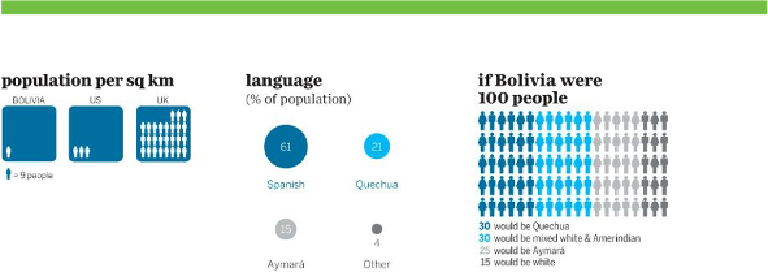Travel Reference
In-Depth Information
Bolivia Today
In Bolivia crisis is the status quo. Protests, poverty, inequality, social change and slow eco-
nomic progress are part of everyday life. At the cen- ter of it all is president Evo Morales
and his new constitution, reforms, and policies that have marked the nation's revolutionary
movement toward socialism. All of these political and social changes are now coming to-
gether to create what will certainly be one of the most interesting chapters in Bolivian his-
tory.
Economy
The nationalization of energy and mining interests was applauded by Bolivia's poor, but it
has soured relations with foreign investors and some foreign governments. And despite
sky-high commodity prices, the Bolivian economy hasn't grown as fast as it should have.
The export of raw materials remains the nation's bread and butter, and with the world's
largest lithium deposits, plenty of natural gas and minerals, Bolivia could very well contin-
ue to see moderate economic progress for the foreseeable future. The stumbling blocks will
include environmental conditions (deforestation, desertification and climate change), de-
pressed foreign markets, and the reluctance of foreign companies to invest money and ex-
pertise in a country with a growing track record of nationalizations.
Society
Despite modest economic growth, more than half of the population still lives in poverty,
and the social programs outlined in the new constitution have made only minimal progress
toward remedying poverty traps.

